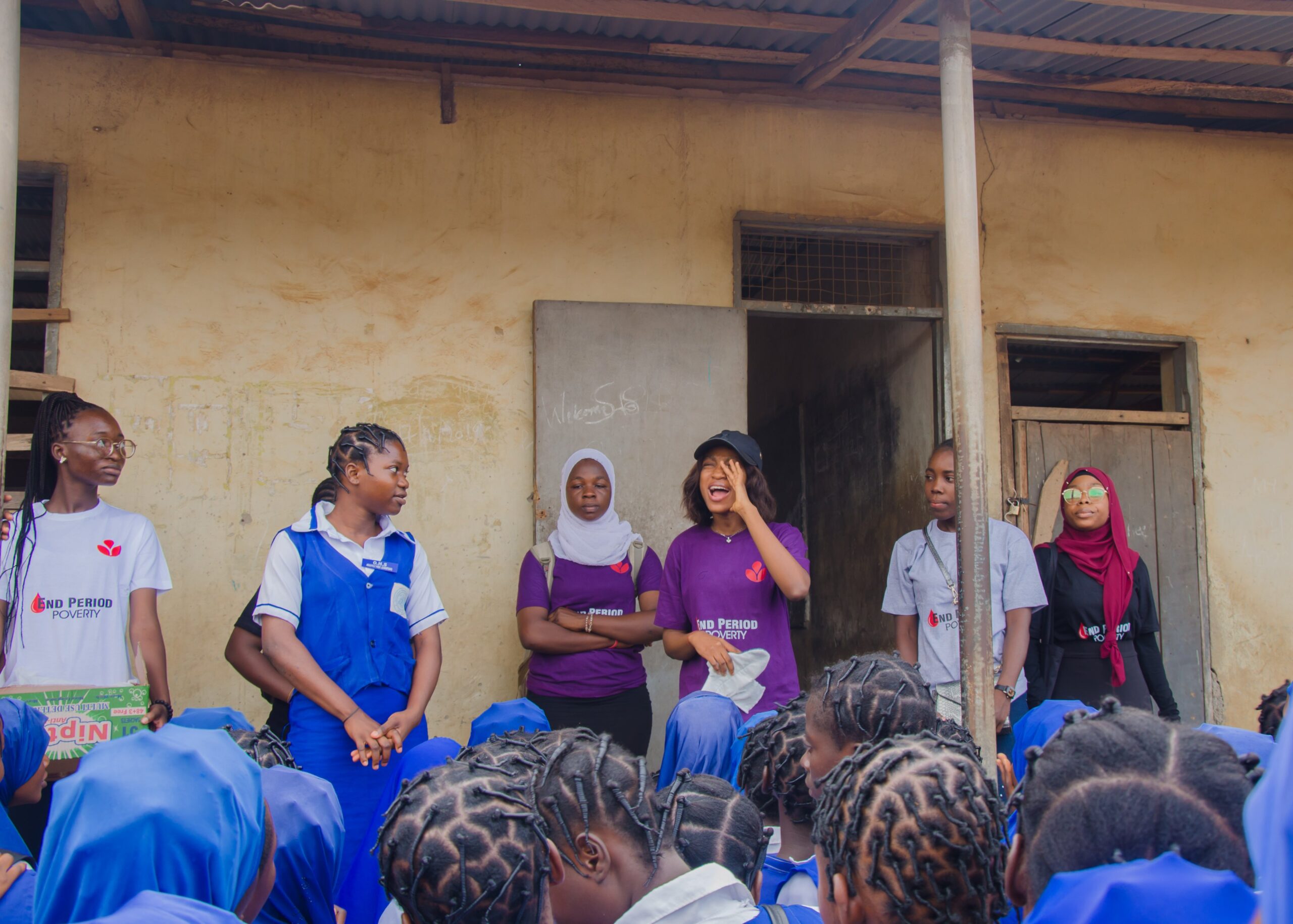
For most Nigerians, Wednesday, May 28th, 2025, was like any other. For the netizens among us, it was the occasion of another abstract ‘World Something Day’; largely restricted to e-fliers, social media posts, and an article or four. But for the dedicated number entrenched in advocacy, and the 37 million Nigerian girls and women affected by period poverty – sometimes the same circle in a Venn– it was a day of utmost significance; World Menstrual Hygiene Day. A day to spur action towards a world more accommodating of periods, without stigma, and with increasing access to quality menstrual health.
Across the nation, students took to the streets, schools, and suburbs in shows of advocacy and commitment to the cause. Secondary schools were visited, parents educated in marketplaces, and research findings made public. So much was done. And in the spirit of the fight, much is still being done.
But by who, specifically? And how? What exactly drives these organisations – overwhelmingly female-led, as they are? For this story, the UIMSA Press spoke with several students and student-led organisations at the frontline of this charge. We explored their challenges, field encounters, and how the policies concerning menstrual health require redress. These women are making an impact, one community at a time, and with limited resources.
Vanguards at the Premier University
Social entrepreneurship and advocacy are as synonymous to University of Ibadan students as the ‘First and Best’ moniker. However, even among the lot, some organisations stand out for their innovative approach to societal issues. One such is A Pad For Her, founded by fifth-year Law student, Deborah Oludimu. Now in its fourth year of existence, A Pad For Her has driven quantifiable change, impacting over 10,000 women and girls. To celebrate this year’s World Menstrual Health Day, Deborah’s team expanded their pad bank initiative, Project Pad Bank Nigeria, to 2 schools, taking the total to 19 across 6 states. Alongside the pad banks, ‘Dignity Packs’, containing sanitary pads, soaps, and their [A Pad For Her’s] new Menstrual Health Handbook, were also distributed.
Reflecting on the journey so far, Deborah shares, “In the first year, when we started out A Pad For Her to create lasting solutions to period poverty we found the increasing need to niche down to two things: advocacy and awareness, and to solve a particular problem – absenteeism in girls’ schools. What we did with Project Pad Bank Nigeria is that we set up Pad Banks in schools and we refill these pad banks every term. To refill these padbanks can be challenging and we refill them, sometimes, twice in a school year. For some schools, just once in a school year to ensure girls do not miss school just because they’re on their periods”. Interestingly, the organisation began from a pandemic WhatsApp group where she and some friends would lament the effects of the increasing unaffordability of pads. As activities kicked off properly, these ladies remained involved, taking part in training sessions to better understand the scope of advocacy.
The organisation has also had outreaches on the International Day of the Girl Child, drawing on its core volunteer base of students in UI. It is advocacy driven by urgency, like a 2016 UNESCO report Deborah cites to show how period poverty translates to absenteeism – 1 out of every 10 girls in Africa misses school per the research’s model. One of A Pad For Her’s volunteers, Odunayo, explains the vision, “Our goal for World Menstrual Hygiene Day is to contribute to creating a period-friendly world through collaborative efforts. We’re focusing on increasing awareness about menstrual health, particularly through our documentary and menstrual book. Raising awareness is important because it allows us to challenge and change harmful narratives surrounding menstruation”. By the end of the year, they aim to have expanded to 30 schools, thanks to grants from FORA Network For Change and Virgin Unite (Canada). A separate grant will be diverted towards influencing policy, a subject the organisation takes seriously.
Addressing the rapid growth, Deborah asserts that ‘going big’ was always the plan. Her background as a writer influenced this decision. “I didn’t want it to be an Ibadan thing because I wanted to cause a shake”, she says, before adding, “[Going big] gave us room to expand and grow really fast”. With a 2024 Junior Chambers International, UI Fifteen Outstanding Persons Awards nomination in the Selfless Contribution category, among other laurels for herself and A Pad For Her, it’s logical to posit that this approach is indeed paying off.
This passion for change is visible with newer initiatives, as well. For Educational Management student, Ibrahim Adetoun Elizabeth, whose project, AGE Padbank, was founded this year, a shared knowledge of the period-unfriendly reality has been a major drive. “I understand the struggles of some ladies during menstruation whereby ladies use unhygienic materials during their menstruation such as clothes, tissue paper etc. Also, menstrual dates can change at any point and some ladies forget to take a pad around”, she explained. Her initiative aims to spread awareness about the need for pad banks and make them available. Like most organisations in this story, AGE Padbank also had a program on Wednesday; a follow-up to their first held on March 25th this year. Adetoun partnered with the Department of Agricultural Economics for the outreach and is open and hopeful for the future.
Sometimes, these outreaches are the product of a student association’s commitment to community service. Bodies like the University of Ibadan Medical Students’ Association and the Unibadan Association of Dental Students organise community health awareness programs that sometimes touch on menstrual health. For this year’s World Menstrual Hygiene Day celebration, the Nigerian Medical Laboratory Science Students’ Association (NIMELSSA UI), organised an outreach to the Oba Akinbiyi Model College, Mokola and Methodist Grammar School, Bodija. The goal? To ‘pad’ 400 —eventually 850— secondary school girls. According to the project’s co-ordinator, Oyindamola Adegoke, it’s the first of its kind in the association. There was a plan to hold a secondary school outreach, which, on the spur of the moment, was tilted to incorporate the May 28th global celebration. NIMELSSA UI partnered with renowned philanthropic body, Sigma Club, for the project.
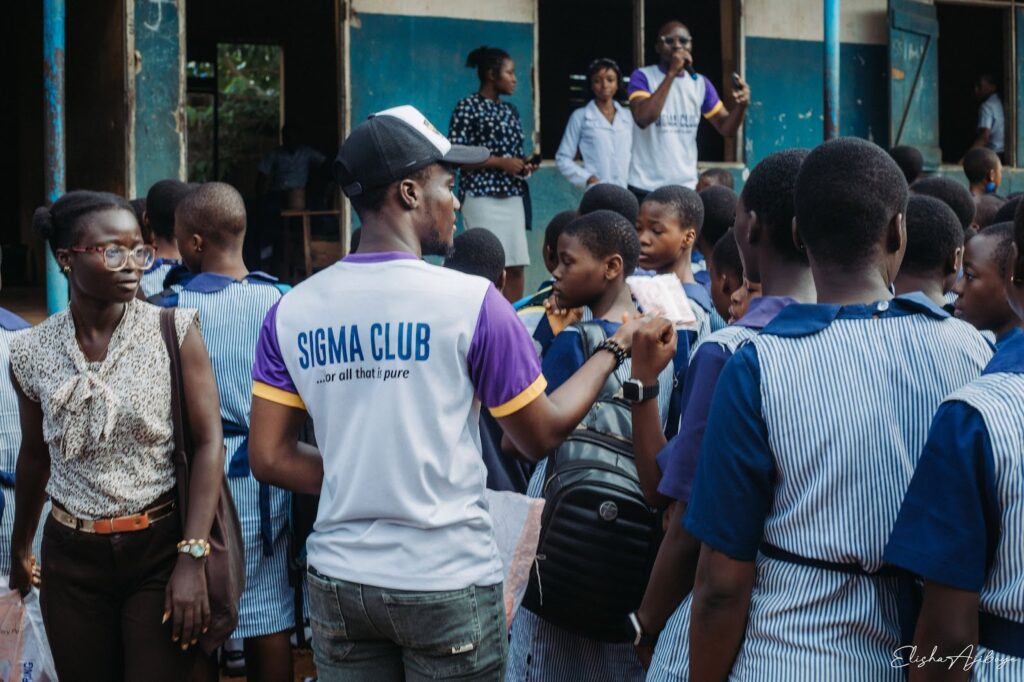
There are also external NGOs with a solid volunteer base of UItes, like the One Women Health Initiative. Via their Pad A Queen Initiative, with over 15,000 reusable sanitary pads distributed to women and girls in underserved communities, and over a million Naira raised.
Across Other Varsities
Thecla Frank-Aririguzo was the first respondent to this reporter’s journo request on about eleven WhatsApp groups, including UI groups. More strikingly, she shared the contacts of other individuals involved in menstrual and reproductive health advocacy. The 400-level medical student of the Olabisi Onabanjo University was already a campus ambassador for a women and girls health-focused NGO,Gynix Africa, before emerging with her ‘Pad-A-Family’ project for her Medical students association’s Standing Committee on Sexual and Reproductive Health Rights including HIV/AIDS (SCORA OOUMSA). Her inspiration? Gynix Africa’s vision.
“My source of inspiration was borne out of the vision of the organisation [Gynix Africa]. Every year, various organisations embark on pad-a-girl outreach. This shows the essence of this project as it highlights the gap in the society despite this much involvement from various groups”, Thecla said. Her outreach program is set for 50 families in a community in her resident Sagamu. She emphasised the lack of exposure when it comes to menstrual health and how her goal is not only to educate families, but also provide them with menstrual hygiene resources. Over subsequent texts, she’d explain that menstrual hygiene education is not for girls and women alone – a view shared across board, and one that’s as factual and commonsensical as it gets. Her vision is for a world where parents realise the essence of safety during periods, and as such strive towards meeting basic needs in their capacity.
About a half-hour away from Sagamu is Babcock University, where another student-led NGO, Feminine Hygiene-Support, was founded. In 2022, then Physiology undergraduate, Boluwatife Ogundoro, observed the spike in the cost of sanitary pads (from 200 Naira to 600 Naira) and how it would restrict access to quality health even further. That concern led to her first outreach at the Ojo Oba and Ibeere markets. Since then, there have been outreaches every year, focusing majorly on schools, including schools in Lagos and Oyo State. In 2023, Feminine Hygiene Support visited three schools in Amuloko: Bioku Alaadun Community High School (Junior and Senior), Community Secondary School, as well as The Redeemed Christian Church of God, Trinity Assembly Oyo. In 2024, they expanded, creating pamphlets on menstrual hygiene in both Yoruba and English. Schools in 3 states were impacted: Lagos – Bola Ige Senior School, Tolu Complex Ajegunle; Ogun- Olorunda Community High School along Aiyetoro Road, Abeokuta; and Oyo -Olopomewa Community Secondary School, Oluseyi Eleyele, Ibadan. They joined the rest of the world to celebrate Menstrual Hygiene Day with an outreach, a tradition she says began last year. “Our experience so far has been rewarding”, Boluwatife opines.
While Boluwatife was setting up Feminine Hygiene Support, a youth corper in far away Abuja, was also coming to the same realisation of a need to advance the sexual and reproductive health of vulnerable populations. On an outreach to a school in the nation’s capital, Favour Chinenye Okpor-Odiboh, now a Postgraduate Reproductive and Family Health student at the University of Ibadan, witnessed the alarming lack of knowledge and resources on menstrual hygiene. “The unsanitary items being used by girls and their limited understanding of menstrual health sparked something within me. After reflecting on this experience, I reached out to like-minded individuals, and we planned our first outreach program to 200 girls in Kiyi, Abuja”, she disclosed. This marked the beginning of her organisation, Heal Up Africa. Since then, she has held several outreaches in the FCT, Osun, and Oyo State, with a reach of over 1,500 girls. She has also provided digital literacy programs and capacity-building initiatives to teenagers, via Heal Up Africa. Much like A Pad For Her, support has come by way of other NGOs like The Great Impact Foundation, Girl Up Nigeria, Brai Consults, and Femme Circle; partnerships Favour claim are instrumental to amplifying impact.
These organisations are part of a global network of NGOS the United Nations Women recognises as ‘changing social norms to reverse stigma…with promising results in many parts of the world’. These are women catalysing passion to induce change.
NiMSA TO- WaSH, SCORA, and Girl-Child Advocacy
It shouldn’t be so much of a suprise that tomorrow’s medical doctors are, today, contributing their fair quota to the advancement of their communities. Under the umbrella of the Nigerian Medical Students’ Association (NiMSA), student doctors in all six geo-political zones, and more than 40 medical student associations are involved in everything from liaising with organisations like the United Nations’ Children’s Fund (UNICEF), to pushing for better energy use per SDG advocacy, and protecting child and maternal health. This is achieved using standing committees, technical offices, and directorates, with organisation at MSA, regional, and national level.
The Technical Office on Water, Sanitation, and Hygiene (NiMSA TO WaSH) is one of the newer offices in NiMSA, with just two years of existence so far. It’s modeled after WASH United, the German-based NGO behind the global Menstrual Hygiene Day celebration which was founded in 2014. WASH United’s ‘partnership-based approach has enabled a reach of more than 2 billion people with menstrual hygiene and sanitation campaigns and more than 2.5 million people with MHM and WASH education’. The numbers might appear questionable until one considers the impact of the yearly May 28th celebrations.
According to NiMSA TO-WaSH’s Technical Officer, Oludoju Olamide Osaoduwa, a 500-level medical student at the University of Medical Sciences, Ondo, “Through annual outreaches, we [NiMSA TO-WaSH] have reached underserved communities and schoolgirls across Nigeria, distributing menstrual hygiene materials and creating safe spaces for conversations around menstruation. Beyond fieldwork, we are also prioritizing internal awareness by sharing educational articles and debunking menstrual myths amongst medical students. This year, we are partnering with the official Menstrual Hygiene Day campaign and leveraging their educational toolkits to scale up our impact”. She’d go on to share pictures of past outreaches of NiMSA TO-WaSH to St James’ Catholic Grammar School, Lipakala, Ondo and St. Stephen’s Grammar School, Odosida, Ondo.
Coordination is dependent on what she described as ‘strong internal structures’. Regular meetings with Local Officers, Regional Coordinators, and Program Coordinators helps ensure same page status, and to execute simultaneous campaigns in diverse locations while maintaining quality and uniformity.
In this regard, Olamide’s nationwide team is joined by the Standing Committee on Sexual and Reproductive Health Rights including HIV/AIDS (NiMSA SCORA). The theme for NiMSA SCORA’s Menstrual Hygiene Day campaign for this year is “Red is not a taboo: Flow with confidence”, a call to the period-friendly society that’s desired. Speaking with this reporter, the NiMSA SCORA Director, Miracle Jeremiah Omolua-David, expanded on how this campaign spanned various MSAs, with activities ranging from media advocacy to pad drives. “We’re paying special attention to underserved communities and pushing for sustainability—exploring reusable pads, local production, and ongoing menstrual education beyond a single-day event. We’re also in talks with potential partners to amplify impact and expand our reach”, she said, adding, “This year isn’t just a campaign—it’s a movement. And we’re committed to making sure every girl, every woman, and every community is seen, supported, and empowered to bleed with dignity”. The vision, she tells me, is to normalise conversations around menstruation, debunk age-old myths, and create a world where period equity is the standard – not the exception.
Then, there’s the Directorate for Girl Child Advocacy, similar to the aforementioned two in goals and methods, but far from redundant in purpose. Their approach involves awareness campaigns and education, pad distribution through the Pad-A-Girl Child campaign, capacity building, and policy. According to the National Director, Akande Bukola Aforkoghene, the policy aspect in particular involves research to influence policy implementation. An example is a recent study titled “Exploring menstrual hygiene knowledge, practices, and barriers among adolescent girls in Nigeria”, which aims to – as a first step – shed light on these barriers.
The nature of NiMSA is such that several other offices are also involved in advocacy. For example, the UIMSA branch of the Liaison to the Medical Women Association of Nigeria, had an outreach of its own, incorporating students into advocacy and in union with mentors much farther down the career line.
Tales From The Field
Here’s a reality check for you: The extent of period poverty in Nigeria — as it stands – means that there are barely enough of these initiatives. And far from being a rural-specific issue, the menstrual hygiene struggle exists even in urban areas. It exists even in our universities.
On May 6th, 2025, the Union of Campus Journalists, University of Ibadan (UCJ UI), re-published a story titled ,’Tales of Period Poverty and the State of Menstrual Hygiene in the University of Ibadan’, detailing the need for increasing advocacy and policy changes to meet gaps in accessibility to menstrual health products. An anonymous Idia Hall respondent for that story mentioned how she sometimes had to explore other alternatives as pads ‘take almost half of what she gets from home as allowance’. It’s the prompt behind initiatives like the Nigerian University Education Students’ Association’s, UI (NUESA UI) Free Sanitary Pad initiative in August last year. And The Blood Drive Network’s distribution of free sanitary products at Queen Idia Hall on December 14th, 2024, as part of their Reproductive Wellness and HIV/AIDS Screening program to commemorate World AIDS Day. On WhatsApp statuses and in group discussions, one can hear the gripe of female students on how even simple asks like period-friendly toilets prove impossible on campus.
It’s more harrowing in inner-city locales. A combination of lack of access to proper menstrual hygiene education and products places a lot of young girls in precarious situations. Deborah and Odunayo both have stories of this sort from their A Pad For Her outreaches. For Odunayo, “An encounter I will never forget was at the International Day of the Girl Child Outreach in 2023. While discussing menstrual pain management, I overheard a conversation between two girls about taking large doses of painkillers to alleviate cramps. As a pharmacy student, I was concerned about the potential harm of such misuse, especially stomach ulcers”. Those two girls are potentially set to be part of a population of roughly 69.8% female undergraduate students in Nigeria who have dysmenorrhea i.e period pains, per a 2024 Journal of Endometriosis and Uterine Studies article. However, with limited information on period pain management, and absent healthcare in schools, their only resort is chucking these painkillers; further increasing their risks of ill health. Deborah mentions some students and their parents being unaware of the oddity of 10-day periods.
In several instances, even adults express their knowledge gap on menstrual health issues, pleading for more support for their wards. When Olamide led her team to seek permission at one of the proposed schools for the NiMSA SCORA outreach, a middle-aged teacher enjoined them earnestly, “Please come. This is very important. Even I don’t fully understand my menstrual cycle”. While at a community in Delta State for research to assess the menstruation normage of girls aged 10-15, members of the NiMSA Girl Child Advocacy team were shocked to find that some older residents had no clue what ‘menstruation’ meant as a term, or how to properly take care of their wards. Some parents even refused the team speaking with their 10-13 year-old daughters stating that they were too young to talk about menstruation. “You go dey spoil the girl”, one mother said.
Elsewhere, the pad banks and menstrual health kits were more than gifts, and life-changing. “One encounter that has stayed with me is of a young girl who wept during one of our outreaches, expressing her gratitude for the sanitary pads we provided. She shared that she had never used pads before, relying on tissue and makeshift items due to her grandmother’s financial struggles whom she lives with”, Heal Up Africa’s Favour Okpor shared. These sort of stories – of living with older relatives who can’t afford menstrual products – aren’t niche. The NIMELSSA UI World Menstrual Hygiene Day Outreach Coordinator, Oyindamola, had gone through the same at one point, relieved by her dad’s arrival with a pack of pads the following day. But for those hours where no hope was in sight, she had to improvise. And by ‘improvise’, she meant extreme discomfort. “It was a devastating experience”, Oyindamola remarked.
Challenges and More Challenges
Understanding the nature of these ladies’ advocacy, is also understanding the challenges they have to confront in the course of their work. Ours is a country where even the Ministry of Women Affairs deems it unnecessary to allocate portions of their 122 Billion Naira budget to this cause, save for a paltry 20 Million Naira for the vague “End Periodic Poverty Campaign’. That same budget contains a 100 Million Naira allocation for the ‘overhauling of elevators and installation of solar power for elevators’. If our leaders’ priority weren’t overwhelmingly obvious before, such actions simply serve as blindfold-lifts.
These organisations need funding. And while most have explored fundraising options, with some like A Pad For Her obtaining grants, the landscape of period poverty advocacy still gasps for financial ease. For instance, Oyindamola and NIMELSSA initially planned to provide pads for both junior and secondary school students at the outreach, but had to resort to padding just junior secondary school girls. This was despite their partnership with Sigma and the fundraising angle they worked with ( 200 Naira to pad 1 girl. 2,000 Naira to pad 10 girls. 20,000 Naira to pad 100 girls). Thecla, who’s outreach is set for June 14th, 2025, is still actively crowdfunding to meet her community’s need. “I am facing challenges as I organise this project. It’s tough getting sponsors to key into this project despite several emails.
Also, crowdfunding has not been easy. I always thought once you put out a flyer on your status, people will rush to help but organising this project has opened my eyes to the intricacies of planning.” , she lamented via text. And although, she went on to express optimism towards the success of the event, it’s evident how much of an uphill battle exists. Miracle Jeremiah speaks of how NiMSA SCORA’s projects depend heavily on personal sacrifices, goodwill or limited local sponsorship.
There are region-specific challenges too. Coordination is more difficult in certain regions, especially where cultural conservatism is stronger or where there’s limited access to digital tools and infrastructure. For example, in some parts of Northern Nigeria, menstrual health is still a highly sensitive subject, and getting buy-in from school authorities or community leaders often requires an extra layer of negotiation and sensitivity. In some communities, menstruation is still treated as a taboo—something to be hidden, not discussed.
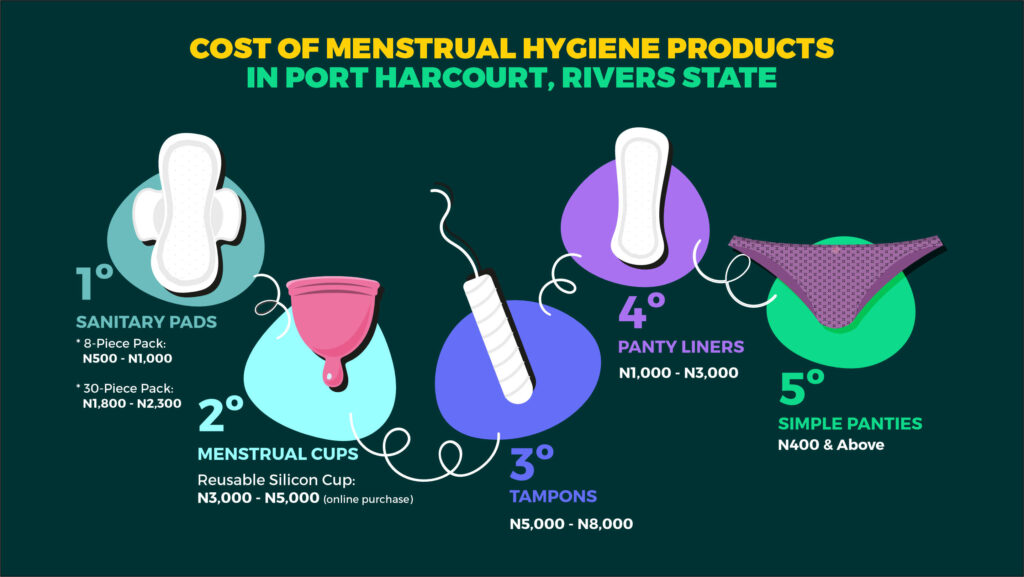
Because most of these organisations depend on volunteers, the perennial struggle with apathy and inconsistent responsiveness exists. For NiMSA in particular, areas with weaker MSA presence or less active SCORA Officers struggle with maintaining momentum, tracking impact, or ensuring national campaigns are localised effectively. Olamide, NiMSA WASH’s Technical Officer also faces her own struggles. “Mobilizing volunteers and local officers across various locations means dealing with varying levels of commitment, and at times, a lack of timely feedback or follow-through can slow down momentum”, she told me.
Regardless, work must go on, and these ladies see to that. Miracle Jeremiah expressed her optimism, stating, “These challenges don’t discourage us—they highlight where we need to invest more: in building local leadership capacity, forming partnerships with trusted community figures, and customizing our message to speak the language—literally and figuratively—of the people we’re trying to reach.” And for Olamide, each success story is a reminder that their work is worth every hurdle. It’s a refusal to be delayed, to fight for the health of Nigeria’s girls and women. Admirable, inspiring, and so much else.
It’s All Back to Policy
We can’t ‘outreach’ our way out of period poverty in Nigeria. Advocacy, philanthropy, and corporate social responsibility just can not replace policy. At best, they supplement; at worst, they die out due to factors affecting sustainability. And that’s the gospel truth according to data.
Speaking with these varsity advocates, four areas of policy changes kept recurring: I. Providing female-friendly facilities with Government-backed menstrual hygiene-products distribution. II. Subsidised menstrual products, tax exemptions, and increased local production. III. Introduction of menstrual and reproductive health education at all levels IV. Continuous awareness via measures like menstrual leave policies.
In line with (II), both the current and immediate past administrations have locally manufactured sanitary towels, pads, and tampons on the Value Added Tax exemption list, as seen in this FIJ report. However, local production is still suboptimal. “It’s not anybody’s fault that they menstruate. Remove tariffs and put subsidies’, Akande Bukola retorts. This goes hand-in-hand with the recommended distribution of menstrual hygiene products by the Government. As Olamide puts it, “Governments should also establish free menstrual hygiene product distribution schemes in public schools and underserved areas, similar to models already in place in countries like Kenya and Scotland. This would directly address period poverty and foster dignity and equality for women of reproductive age”. This should trickle down to all levels, such that, in the University of Ibadan, for example, students can visit the Students’ Union Building toilet, knowing fully well that sanitary pads and other products are readily available.
Beyond the products themselves, these facilities should also be conducive. For A Pad For Her’s Odunayo, this means restrooms with running water and handwashing stations, safe and hygienic disposal options for used menstrual products, among other upgrades.
The solution to stigmatisation is education, Favour opines. Menstrual and reproductive health education, contrary to misguided opinions, are not the exclusive preserve of students in tertiary institutions. Neither should only girls be taught. Otherwise, we’ll have more concerning situations, like when a student told Deborah, “Aunty, there’s this boy in my neighbourhood that said if he sleeps with me, my period pain won’t be much again”. The solution to period poverty encompasses providing information that will empower girls and women to make healthy choices to manage their menstrual health. For professional and social spaces, period leaves should be introduced. Nigeria would not be the first country with such a policy. Or the first African country for that matter – Zambia does.
A week on from World Menstrual Health Day, in a country with abysmal reproductive health, and a Government unwilling to uphold its societal contract to citizens, it’s imperative that we celebrate these young women. Unafraid, undeterred, and unfettered by society’s normatures. They are the forebears of a period-poverty-free Nigeria, leading the gown to the town, and erasing stigma one outreach at a time.
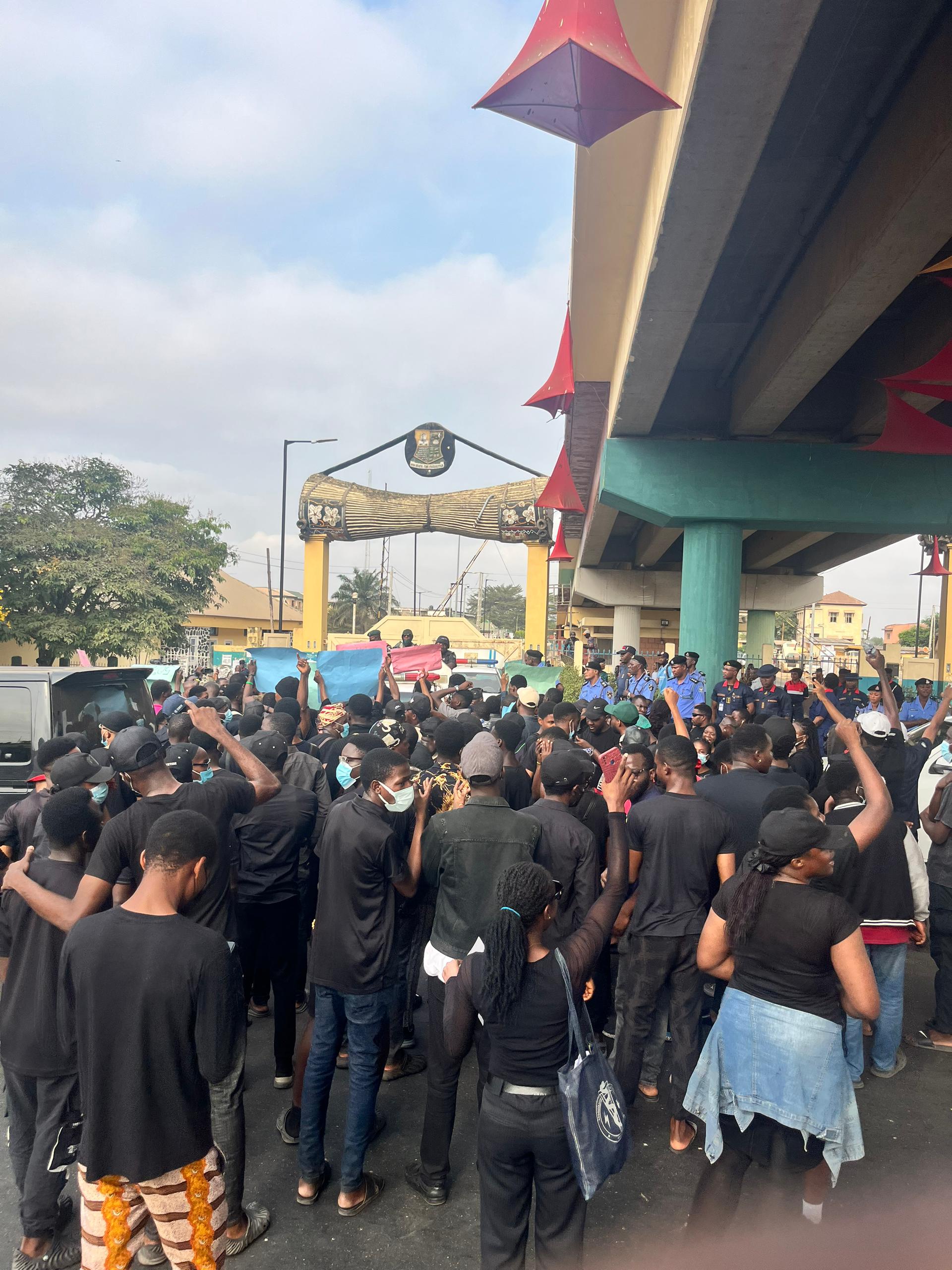
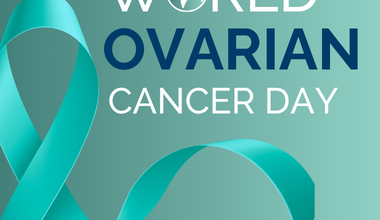
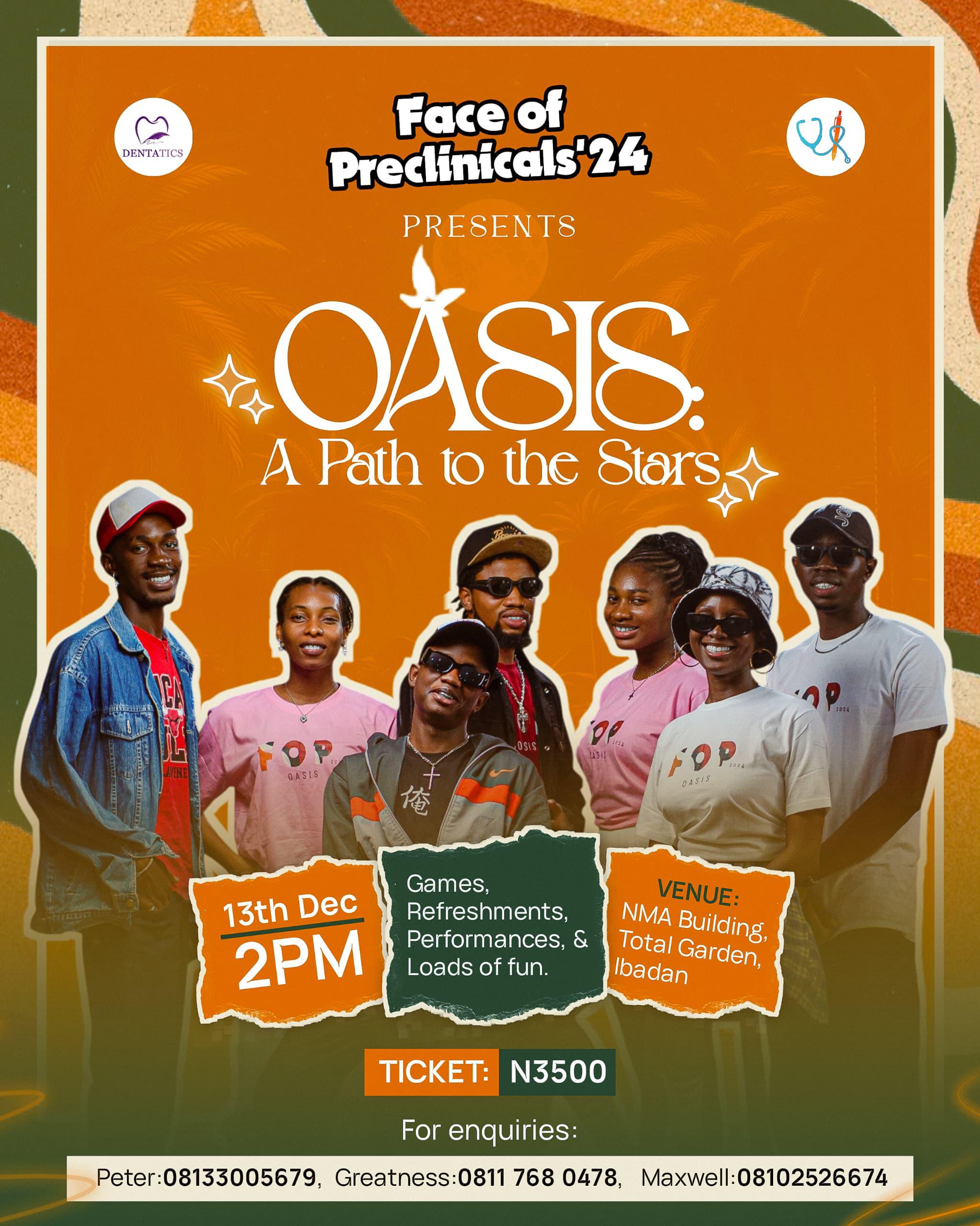
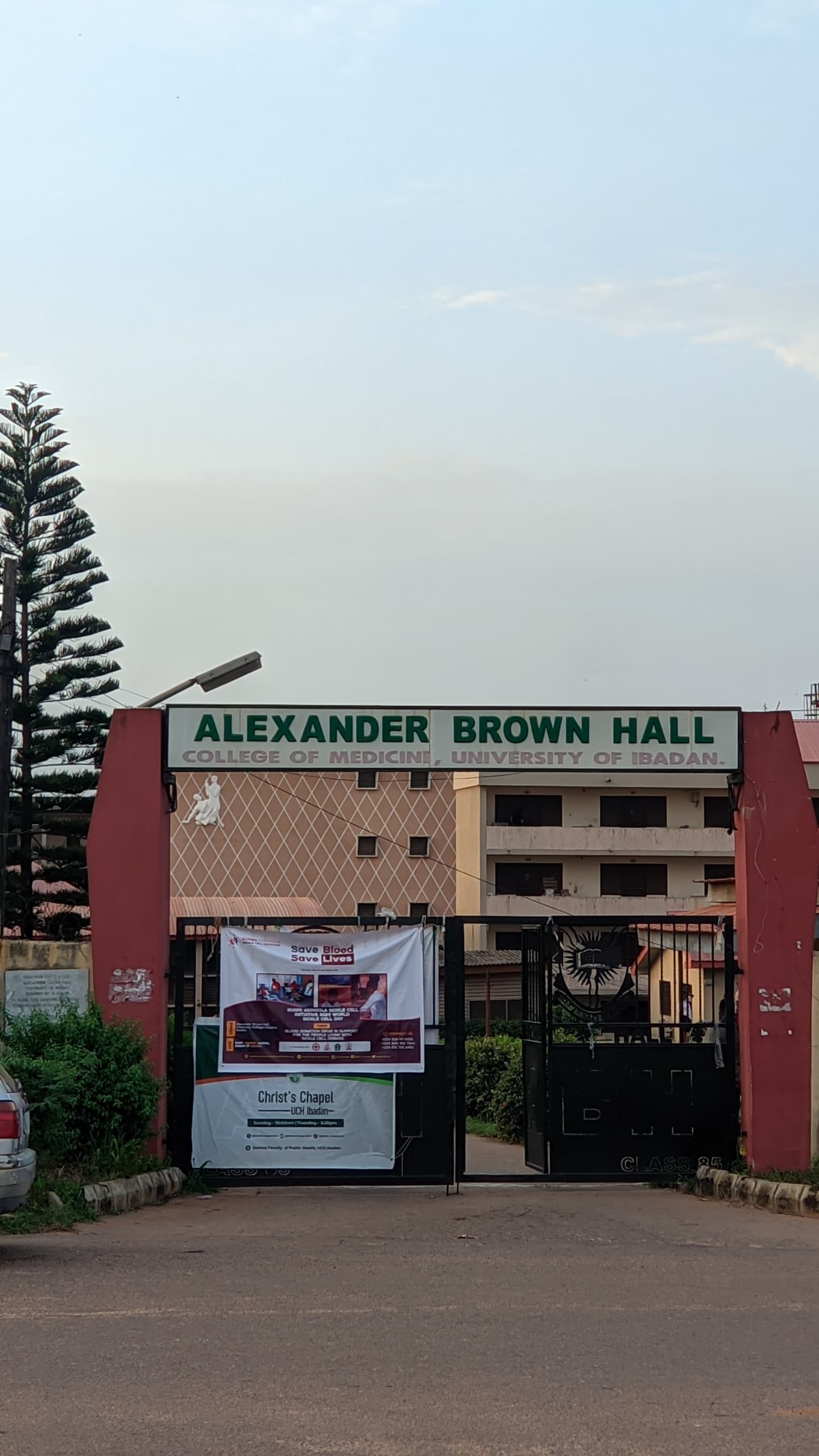
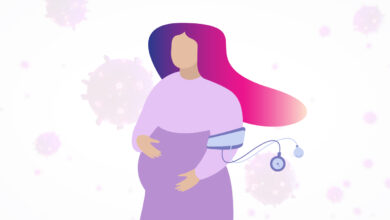
This was really so enlightening… I really hope that these measures are effected consistently.
This was really so enlightening… I really hope that these measures are effected consistently.